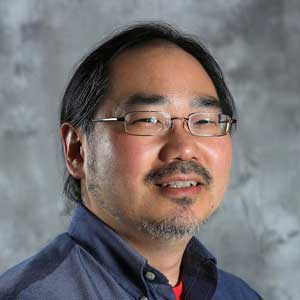AAPI Month Community Reflection
Posted by Dale H. Watanabe, Director of International Student Center PDSO, RO on Tuesday, May 3, 2022 at 7:52 AM PDT
As I reflect on the meaning of an Asian American and Pacific Islander Heritage Month, I find myself thinking of my own history as an Asian in America and how often I have felt invisible and ignored. Far too often the struggles of BIPOC (Black, Indigenous, and people of color) communities are ignored in American history books and when race is discussed it is often painted with only two colors. AAPI Heritage Month celebrates over forty countries and more recently has been known as APIDA (Asian Pacific Islander Desi American) Heritage Month to help represent this diverse grouping.
In Seattle, growing up Asian was neither a cakewalk nor a hindrance. I was fortunate to attend schools that had many BIPOC students and learned about the power of community early. However, it was several years before I heard the story from my parents about the events that affected my family the most: the forced removal and incarceration during WWII. It was not until 2007 during a journey with my parents on the annual pilgrimage to the Mindoka National Historic Site in southcentral Idaho that I finally heard the personal stories of what happened in my own family.
Our country is built on layers of discrimination and othering. Fear and hate are strong emotions and can lead to bad decisions. It is far too easy for the public and our government to find and blame a target to get ahead. For a contemporary example, the alarming rise in anti-Asian attacks demonstrates that. According to data from Stop AAPI Hate (www.stopaapihate.org) there were 10,905 reports from March 2020 to December 2021. Although the popular rhetoric may scream “Blame the Chinese” the report shows that in the eye of the perpetrator, “all Asians look alike” and Chinese, Korean, P/Filipinx, Japanese and Vietnamese report the highest number of attacks.
I am a descendant of a family forced out of Seattle and imprisoned at Minidoka Concentration Camp in Block 14, barrack 10, Family number 11755. I will continue to work to speak out against injustice and not ignore the history of our BIPOC communities. My family never gave up on America and neither will I. I dream of a better vision for America. Celebrating APIDA Heritage Month encapsulates a large community with diverse backgrounds and history that made America.
Take a moment now to explore the rich history that is a part of our campus. Seattle University was once a part of the historic Nihon machi (Japan town) before WWII. The University helped support Fujitaro Kubota upon his return to Seattle after spending time in Minidoka Concentration Camp and his legacy continues with the beautiful Kubota gardens we have on campus, which includes the Japanese American Remembrance Garden designed by his grandson. The story of the Japanese American incarceration is just one story of immigrants trying to make a better life in America and suddenly labeled an enemy and guilty by race. If we do not continue to recognize the injustice of this story, it can easily happen again.

Dale Watanabe, Director, International Student Center
